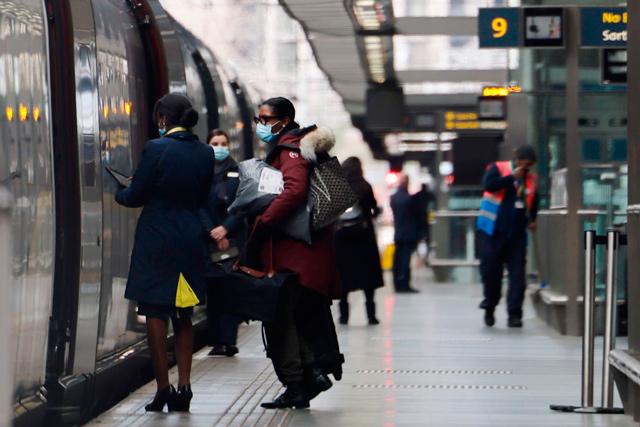- Mix
- Tue-2021-01-19 | 02:59 pm

Eurostar, whose train services through the Channel Tunnel have been decimated by the coronavirus pandemic, has called on the UK government to provide it with the same financial support handed to grounded airlines over concerns about a possible collapse.
Christophe Fanichet, a senior executive from SNCF, the French state railway and part-owner of Eurostar, said on Friday that the London-based company was in "a very critical" state after a collapse in travel between Britain and the European continent.
Following a call by British businesses for a UK government rescue of London-based Eurostar, the company on Monday reiterated the need for support.
"We are encouraged by the [British] government backed loans that have been awarded to airlines and would once again ask that this kind of support be extended to international high-speed rail which has been severely impacted by the pandemic," Eurostar said in a statement.
"Without additional funding from government there is a real risk to the survival of Eurostar, the green gateway to Europe, as the current situation is very serious," it added in reference to trains' lower emissions compared with planes.
Separately, the Department for Transport said it recognised "the significant financial challenges facing Eurostar as a result of COVID-19 and the unprecedented circumstances currently faced by the international travel industry".
While it did not refer to the loans request, the department said it would continue to work closely with Eurostar over "the safe recovery of international travel".
Eurostar is 55 per cent owned by the SNCF, 30 per cent by Canadian fund manager CDPQ, 10 per cent by Britain-based fund Hermes Infrastructure, and 5 per cent by the Belgian railway SNCB.
Business plea
British business leaders have joined the call for the UK government to financially rescue Eurostar.
In a letter dated Friday and sent to British Finance Minister Rishi Sunak, London First lobby group said Eurostar needed "swift action to safeguard its future", or further harm Britain's economy and environmental targets.
Signed by 25 executives and academics, the letter urged Britain's Treasury and Department for Transport not to allow Eurostar to collapse.
"If this viable business is allowed to fall between the cracks of support — neither an airline, nor a domestic railway — our [economic] recovery could be damaged."
Last week, Fanichet said Eurostar passenger numbers were down 85 per cent in 2020 from the year earlier and that the group was now "on a drip" in need of extra cash to prevent it from collapsing.
He added that the problem for Eurostar was that it was seen as French by the British government and as British by the French, meaning it had been difficult to secure bail-out cash.
Prior to the pandemic, Eurostar had gradually been expanding its services, with new lines opened up from London to Amsterdam, the Alps, the south of France — in addition to the regular lines between Paris and Brussels.
-
 Will Trump end up like Kennedy?2026-02-03
Will Trump end up like Kennedy?2026-02-03








